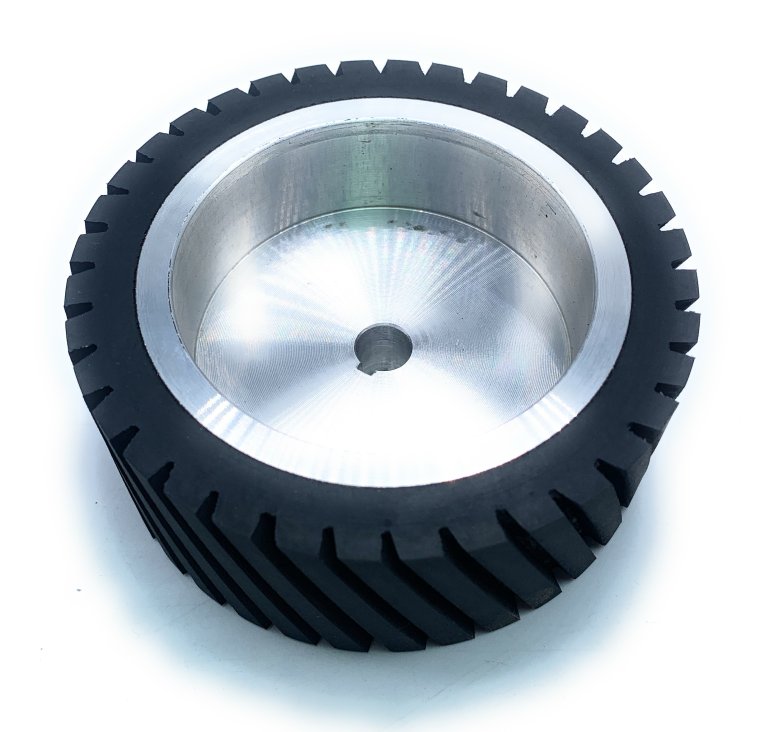- This topic is empty.
-
AuthorPosts
-
2025-09-03 at 4:27 pm #4680
In grinding, polishing, and finishing operations, the contact wheel is a vital component that directly influences efficiency, precision, and surface quality. Whether used in metalworking, woodworking, or industrial fabrication, selecting the right contact wheel can greatly enhance equipment performance and extend tool life.
However, with numerous types, sizes, and material options available, choosing the best contact wheel requires understanding your equipment, application, and material requirements. This guide will help you navigate the selection process and highlight how Signi Industrial (Shanghai) Co., Ltd., a leading manufacturer of abrasives and diamond products, delivers high-quality solutions trusted by industries worldwide.

1. What Is a Contact Wheel?
A contact wheel is a rotating wheel used in grinding and finishing machines to press abrasive belts or grinding media against the workpiece. It provides:
-
Support and pressure for the abrasive belt
-
Contact surface geometry that shapes or polishes the workpiece
-
Consistency in grinding depth and finish
Contact wheels are essential for achieving smooth, accurate, and efficient grinding results in a wide variety of industrial processes.
2. Key Factors to Consider When Selecting a Contact Wheel
a) Material of the Workpiece
Different materials require different wheel hardness and surface textures.
-
Metals (steel, stainless steel, aluminum): Softer rubber wheels for uniform grinding.
-
Hard alloys and ceramics: Harder wheels to withstand higher forces.
-
Wood or plastics: Lightweight and flexible wheels for gentle finishing.
b) Wheel Hardness
The hardness of the contact wheel determines grinding aggressiveness:
-
Soft wheels: Offer more cushioning, suitable for fine finishing.
-
Hard wheels: Deliver aggressive material removal for heavy grinding.
c) Diameter and Width
Wheel size affects pressure distribution and belt speed. Larger wheels cover more surface area, while smaller ones provide better precision for detail work.
d) Grooved vs. Smooth Surface
-
Smooth wheels: Provide even pressure, ideal for flat finishing.
-
Grooved wheels: Reduce heat buildup and allow better belt tracking in heavy-duty grinding.
e) Equipment Compatibility
Always ensure the wheel dimensions, mounting type, and bore size match your equipment’s specifications.
3. Common Applications of Contact Wheels
Contact wheels are widely used in:
-
Metal fabrication and polishing
-
Cutlery and tool grinding
-
Aerospace and automotive component finishing
-
Woodworking and furniture manufacturing
-
Plastic and composite processing
By selecting the correct contact wheel, industries can improve efficiency, minimize downtime, and achieve superior surface quality.
4. Why Choose Signi Industrial (Shanghai) Co., Ltd.?
With years of expertise in abrasive technology, Signi Industrial (Shanghai) Co., Ltd. has established itself as a global leader in grinding and polishing solutions. The company specializes in the R&D, production, and sales of abrasives and diamond products, with an annual output of tens of thousands of tons of abrasives.
Key Advantages of Signi:
-
Extensive Product Range: Fiber-reinforced resin cutting discs, ultra-thin grinding wheels, depressed center wheels, flexible grinding wheels, and more. Covering four major series and over 1,000 product types.
-
Global Reach: Products exported to 40+ countries and regions, trusted by international industries.
-
Innovation & Quality: Advanced manufacturing backed by continuous R&D ensures products meet diverse industrial needs.
-
Customized Solutions: Tailored products designed to match specific equipment and application requirements.
By integrating cutting-edge technology with a customer-oriented approach, Signi delivers high-performance contact wheels that help industries improve efficiency, safety, and cost-effectiveness.
5. Tips for Maximizing Contact Wheel Performance
-
Match wheel hardness with your application to balance efficiency and finish quality.
-
Regularly inspect wheels for wear, cracks, or imbalance.
-
Pair wheels with high-quality abrasive belts for optimal results.
-
Use proper mounting and alignment to prevent uneven grinding or machine vibration.
Conclusion
Selecting the right contact wheel is critical for maximizing the performance of grinding and finishing equipment. By considering factors such as material, hardness, diameter, and surface design, businesses can ensure consistent results and longer tool life.
Signi Industrial (Shanghai) Co., Ltd. stands out as a reliable partner, offering a complete range of abrasives and diamond products backed by decades of expertise, global reach, and strong innovation. Whether your industry involves metal, wood, plastics, or composites, Signi provides durable and efficient contact wheels that meet your unique needs.
If you are looking to enhance productivity and achieve superior surface finishes, choosing the right contact wheel—and the right manufacturer—can make all the difference.
http://www.shanghai-signi.com
Signi Industrial (Shanghai) Co., Ltd -
-
AuthorPosts
- You must be logged in to reply to this topic.